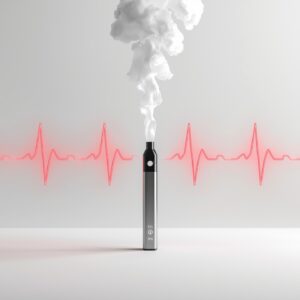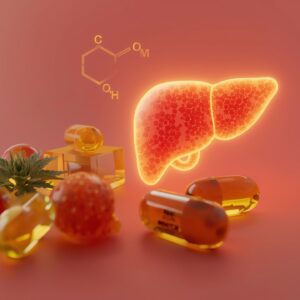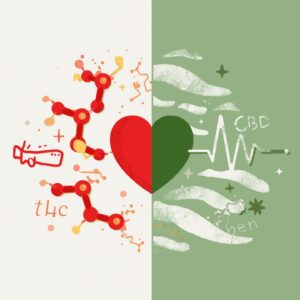When it comes to cannabis and heart health, we aren’t talking about our deep love for the healing that it is, but instead we will discuss the reactions in which it has with our internal systems that effect the hearts functionality. Can we balance out the good with the bad, or is this story very one sided?
How Does Cannabis Affect Your Heart When Smoked (Joint, Bong, Pipe)

Starting with the worst, let’s get down to the nitty gritty. Smoking means combustion, combustion means stressed cardiovascular system (a big no no for heart health). Smoking most often results in high dopamine spikes as well, which creates heart rate spikes too, an obvious unhealthy result.
That faster heartbeat means your heart pumps more blood per minute, and if your blood vessels haven’t yet dilated to handle that, blood pressure temporarily spikes. This is all thanks to THC reacting with our ECS (endocannabinoid system) in an intense way. As we can see, this is not a walk in the park for our heart & therefor not healthy.
Less dosage is better, higher dosages are worse, as expected. The one plus side is that when it reacts with our ECS & CB1 receptors your blood vessels widen slightly. This reduces resistance in blood flow, causing a drop in blood pressure and that familiar light, relaxed sensation.
Cannabis Smoked in THC Vapes

Here we are talking about high levels of THC (80-97%). The great part is that there is no tar or heavy combustion going on, like you would have with smoking cannabis (temperatures can rise to 600-900 degrees Celsius). This does mean sunshine and rainbows though.
High THC levels mean higher dopamine spikes, here we walk into the territory of anxiety, nausea and even panic if you aren’t experienced. As we mentioned above, this causes high heart rate, leading to high blood pressure. Since THC Vaping is relatively new, coming about in 2015-2017 at large, long-term effects are unknown.
How It Affects Your Heart When Consumed (Edibles, Oils, Capsules)

Finally, let’s get to the good part. This is an entirely different process, so we can expect different results. Cannabis processed through the liver & digestive systems means a few things: Delayed onset, prolonged effect and its going to kick a lot harder, let’s see why.
In the liver, enzymes (mostly CYP2C9 and CYP3A4) break down delta-9-THC and convert part of it into 11-hydroxy-THC. This 11-Hydroxy-THC is much more potent and crosses the blood–brain barrier faster, which is why edibles often feel stronger and longer-lasting, even at smaller doses.
The prolonged onset means more time for the vessels to dilate, which is a good thing. The fact that it comes across stronger, means you need to control the intake amount (less is better). Too much can cause high heart rates for prolonged periods of time which strain the heart.
How Does THC vs CBD Affect the Heart (Small vs Large Doses)

THC and CBD might come from the same plant, but they play two very different games with your heart.
- THC gives the cardiovascular system a bit of a rollercoaster. In small doses, it can cause a mild bump in heart rate (depending on dosage), a short burst of stimulation followed by gentle vasodilation (that relaxed, mellow feeling). But in higher doses, THC can push things further: tachycardia (rapid heartbeat), light-headedness, or even anxiety if your body isn’t ready for it. It’s not dangerous for most healthy people, but if your ticker’s already under pressure, it’s worth taking slow hits, not hero ones.
- CBD, on the other hand, is the calm older sibling. It interacts more with your parasympathetic nervous system, which helps your body chill out, lowering stress, easing inflammation, and even showing early signs of cardioprotective effects in studies. In smaller doses, CBD just keeps things balanced. In larger ones, it may slightly drop blood pressure and make you feel drowsy, but it won’t send your heart racing.
Strain balance matters too: Sativa-leaning strains (high THC, low CBD) bring more energy and stimulation, while Indica-dominant or balanced hybrids lean toward relaxation and steady rhythms.
Bottom line:
THC revs the engine — CBD keeps it idling smooth.
Conclusion

Cannabis isn’t the villain or the hero in this story; it’s more like a mirror. How it treats your heart depends on how you use it. Smoke too much, and your cardiovascular system takes a knock; choose mindful doses, and the impact is often mild or even beneficial, especially when CBD joins the mix.
If you’re chasing therapeutic balance, edibles and lower-THC strains are usually the friendlier options. But if your heart health is already a concern, it’s smart to talk to a doctor before lighting up, cannabinoids can interact with medications and pre-existing conditions.
